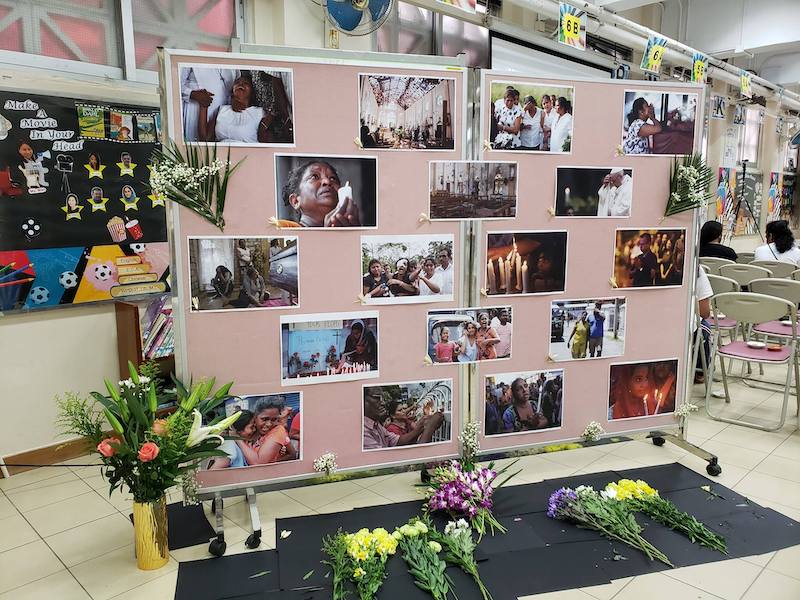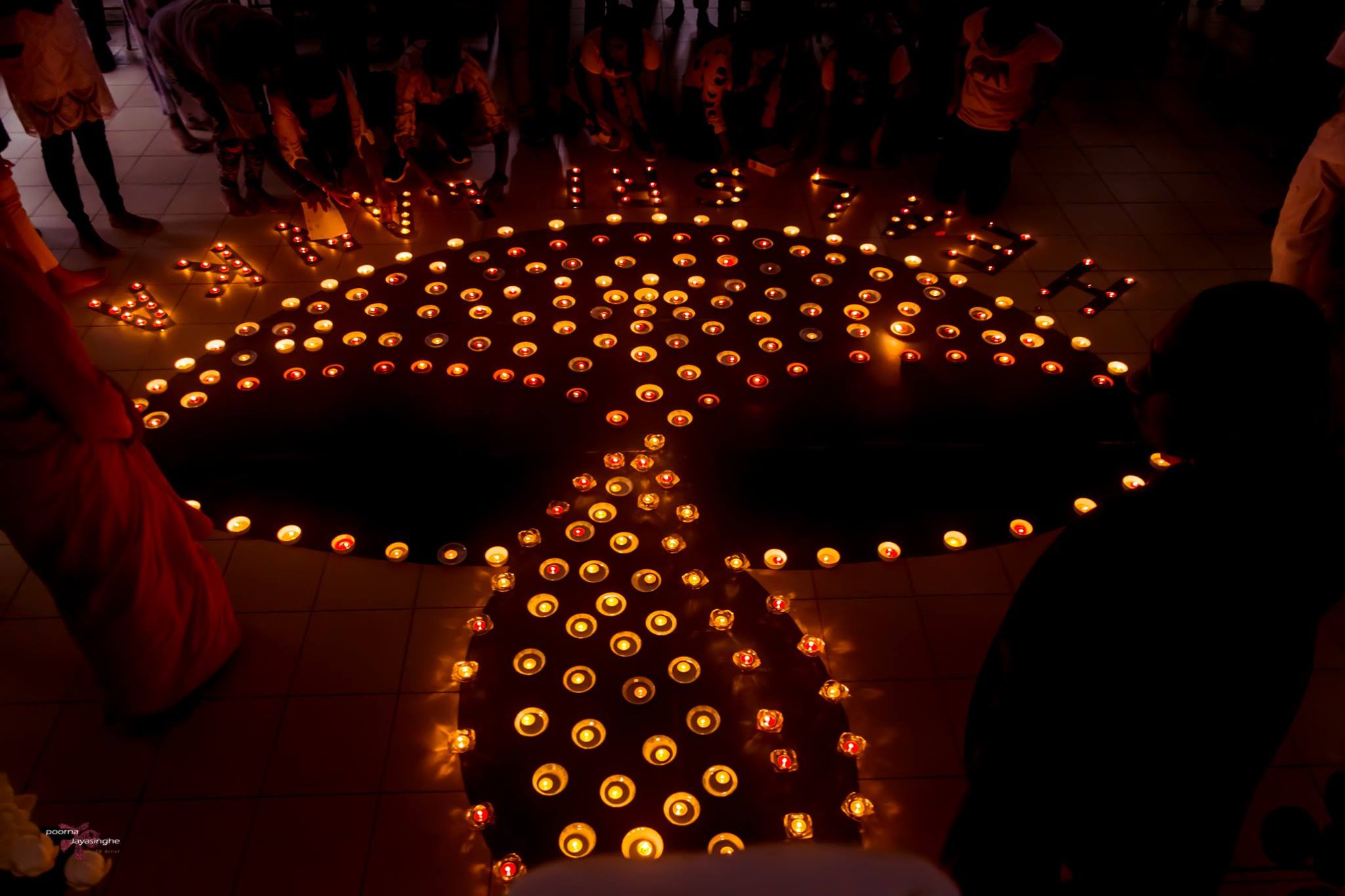Photo by Poorna Jayasinghe
The media deals in words as a trade. Words are what media professionals sell, in a sense. Words are penned in a paper or on a website, broadcast through radio and podcasts, or spoken by a personality through the telly, smartphone and tablet, or YouTube. Yet there are those occasions in which words are insufficient, and even condolences can often seem trite or overused in the light of terrible deeds done and grave harm inflicted. That was how I believe everyone felt on Sunday’s vigil for the 253 lives lost to the Easter bombing attacks in Sri Lanka on 21 April.
Organized by the Sri Lankan Buddhist Cultural Centre and hosted at Po Leung Kuk Lam Man Chan English Primary School, the vigil was an event to provide a space for mourning in togetherness, and to share in the comfort that is our common humanity. As I met up with old friends and faced the sombre, stricken, and shocked countenances of Hong Kong’s Sri Lankan-born community, I found that I could add little to the comfort and tenderness offered by the interfaith gathering of Catholic, Hindu, evangelical, Buddhist, and Muslim leaders.
What more was there to be said, when people were scared that the country would be torn apart once more by civil war or sectarian and ethnic strife? When Sri Lankans themselves were confused and upset with the lack of credible information about the attacks and what could be done? When there was deep concern that the world would see Sri Lanka with fear and apprehension through the lens of this attack, before moving on to the next global disaster like a distracted spectator?

As a journalist of religion, what I do think I shared with the heads of faith was the appreciation of silence. I tried to connect the indispensability of silence in the spiritual life to how mindfulness of the need for silence in the face of tragedy can be its own form of healing. In much of journalism, business as usual means politics as horse betting, the highs and lows of the stock market, and celebrity gossip. Such environments do not really want a break in the noise. Even immediately after this calamity on Easter, segments of the media fell into old habits and went into overdrive, filling the airwaves and Internet with “noise” that sometimes is not conducive to public information, let alone the project of spiritual healing.
However, the religion journalist is, not inevitably, but fairly often, a confessional person outside of their profession. This means that the privilege of the byline, column, or soapbox should always serve, even if indirectly, a religious end. Words are not the priority, and are themselves servants, just as their wielder should be. Only when words are allowed to sink into the silence of experience are they able to have weight, and truly be of use to human beings suffering through tragedy.
I hope words can be used in this manner, a bit more sparingly. When we are not in touch with this silence (only saints constantly are), may our words of comfort in the face of horrific events like the Easter bombings be considered, careful, and self-aware. Sometimes, healing needs no talk. When talking must be done, let words of empathy, solidarity and hope be shared between people, passed to each other like fondly written letters of love and thanks. Tenderness is true strength, and to lash out violently is surprisingly easy given the grave consequences that follow.
The Catholic writer Thomas Merton visited Sri Lanka in 1968, where he had a deeply spiritual experience before the great Buddha images at Polonnaruwa. A decade earlier, in Thoughts in Solitude (1958) he foreshadowed this wordless experience by writing: “In true prayer, although every silent moment remains the same, every moment is a new discovery of a new silence, a new penetration into that eternity in which all things are always new. We know, by fresh discovery, the deep reality that is our concrete existence here and now.” (97-98) It is impossible to meditate with noise crowding the mind; the transcendent presence does not speak through audible words or sound. True healing, truly human life, is to participate in that silence, in order to discern the voice beyond all sounds.
“When I am liberated by silence, when I am no longer involved in the measurement of life, but in the living of it, I can discover a form of prayer in which there is effectively no distraction.” (Thoughts in Solitude, 106)

